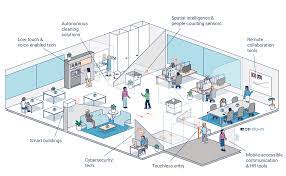
Introduction
Newer digital opportunities are creating fresher challenges too- urgently beseeching to be resolved by the leaders, implementers and the teams lead by CXOs in public domain. The emerging issues need to be brainstormed together; new conceptual frameworks and approaches beg to be redefined in unison. For doing so, we need a sanitized ‘sand box’ environment for learning the basics and a ‘test-bed’ that permits ‘out-of-box’ creative discussions that could be conducted in a systematic and structured way . It is all that this training on ‘e-governance’ is striving to be ! The proposed training would pick up some such policies to highlight the complex repercussions of the digital technologies on governance structures including policy decay, maintaining trust and so on. Once understood, the learners would together evolve more contextual mechanisms that could be conceived by incorporating more agile approaches in the public process formulations related to technology spaces.
Objectives of the course:
After the completion of this training, the learners shall be able to appreciate:-
Number of Days : 5
Target Audience: CXOs, Senior and Middle level Civil Servants
Description on Modules
Module 1: Agile Policy-Making to Catalyse GovTech
Module 2: Digital Diplomacy, Internet Governance, Digital Sovereignty & Mergers /Acquisition
Module 3: Data Privacy & Data Protection
Module 4: Policy Debates on AI and Related Issues: Ethics, DeepFake, JobLoss
Module 5: IT Act 2000 and its Amendments (2008 & 2018)
Pedagogy: The aim is to encourage the process of learning together.
Why is the training unique?
Nowadays every industry is influenced with ever-changing trends of technologies. The needs and aspirations of the citizenry are also constantly evolving. The learners of this training would be able to develop technology-agnostic policy frameworks that should stay responsive to the changing times, ushered in by COVID-19 and digital disruptions of the present times.